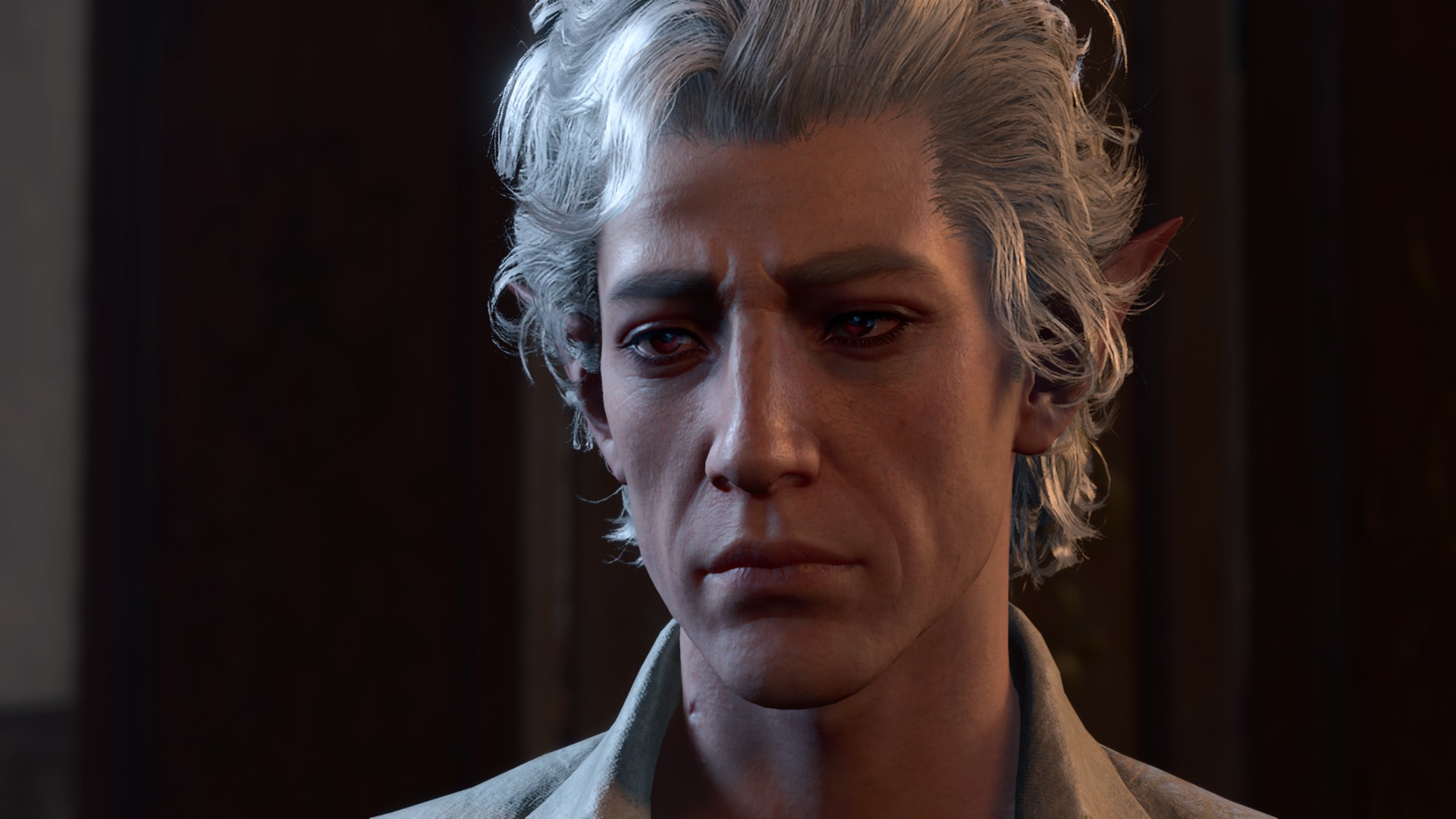
Content Warning: The topics of abuse, sexual assault, and survivorship are discussed in this article.
Of all the characters in Baldur's Gate 3, I think Astarion surprised me the most. He's an eccentric, sulky, seductive vampire spawn with a flair for the flamboyant and an undying love of the word "Darling"—yet his story also deals with heavy subject matters, with reassuring nuance. I'm going to spoil a few plot points of his story over the course of this article, though I've yet to see his storyline to its conclusion.
Astarion is a victim of a greater evil. On the surface his goals are power, politics, and blood—but underneath that hardened exterior lies a young man turned into a monster, desperately seeking safety. This especially struck me when, in Act 2, I floated the idea of transforming him again with an astral tadpole we'd found: "I don't want to turn into anything else. I can't do that again. I can't watch my body be taken over."
It's a vocal performance that's wedged itself into my brain, thanks to the sheer vulnerability in Astarion's voice. PC Gamer's Fraser Brown—who recently reviewed the game—also noted a particularly impactful scene in his conversations with the team, where you have an opportunity to coerce Astarion into biting someone he doesn't want to.
The themes are clear as day. Scratch Astarion, and a frightened boy bleeds, one who still fears danger so much that he'll do whatever it takes to stay close to the people who can protect him. But there are moments of softness and empathy, too—whenever someone risks losing their autonomy, Astarion understands. I spoke with Neil Newbon—the voice of Astarion—last week. During our sit-down, I asked what it was like to represent that struggle:
"There's a lot of stuff that came very close to home … As a rule, you have to be very careful about where their story is, and where your story is, and not to blend the two things together. You can use elements of your life as substitution/personalisation, that sort of thing, but you have to avoid anything traumatic that you haven't dealt with, and the method acting rule is 'at least 7 years in the past'," Neil says, referring to a method acting guideline which states that you should only call on memories that are at least 7 years old.
"You also can't judge or protect a character … you're stepping into their shoes. You're holding them, you're hugging the character through their journey, but you aren't there to stop them from fulfilling it. So for me, it was just [asking myself] 'What is the truth of this, his, moment'?"
Sex and bodily autonomy in Baldur's Gate
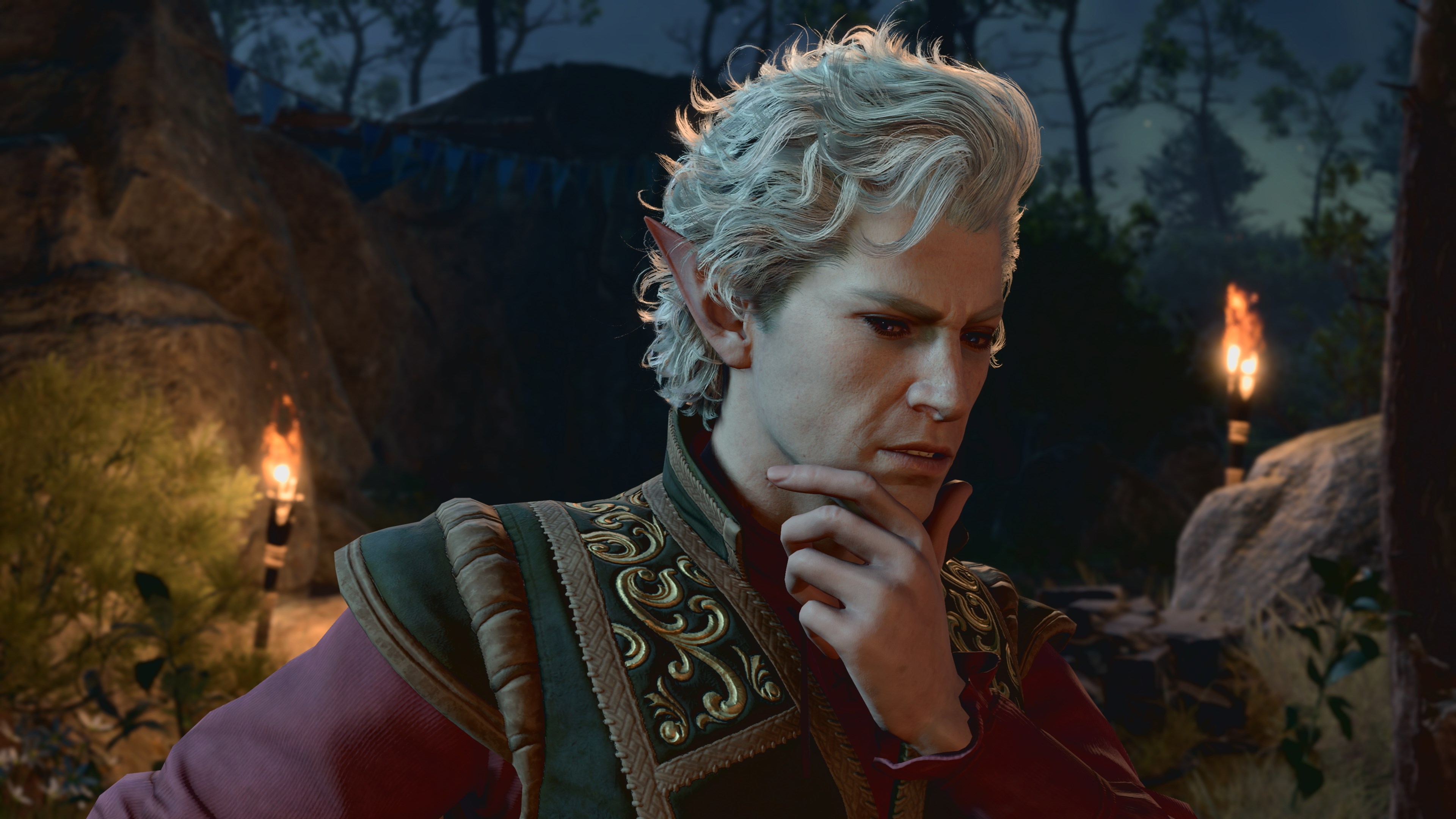
That truth is particularly important because of how much Baldur's Gate 3 deals with themes of sex and intimacy. There are multiple sex scenes for each romance—so many that an intimacy coordinator was brought in to assist—and for many companions, this forms a core part of their narrative. Karlach, for example, grapples with being touch-starved, thanks to her Infernal Engine scorching everything she touches.
But for Astarion, these themes move beyond the physical and into realms of bodily and spiritual autonomy. As a vampire spawn, he was physically incapable of refusing or fighting back against Cazador, the vampire who turned him into a monster. I noticed that this abusive relationship informs how Astarion views the world—through power.
If you aren't smooching him, this first comes through when he suggests you take over the Absolute fanatics in Act 2 and start your own cult. In his romance path however, Astarion outright admits that he slept with your character for protection—"habits from 200 years of charming people"—only unexpectedly developing feelings for them later.
"As an actor, you can't judge the characters," Newbon says, describing the struggle between his protective instinct over the character and providing honesty. "You have to play every reality, you have to play every side of him. One is to be able to hug somebody and accept the hug and be seen and be vulnerable. But then, of course, I play the other side of him, which is to start a cult.
"It wasn't easy to do, but the script was so rich, so well observed and thoughtful, throughout every aspect of every possible story—from the good stuff that he's experienced. The fun, the new friends, the romance, the sex, the love of the party, the diabolical stuff ... as well as his vulnerable side, the traumatised Astarion."
Being a survivor
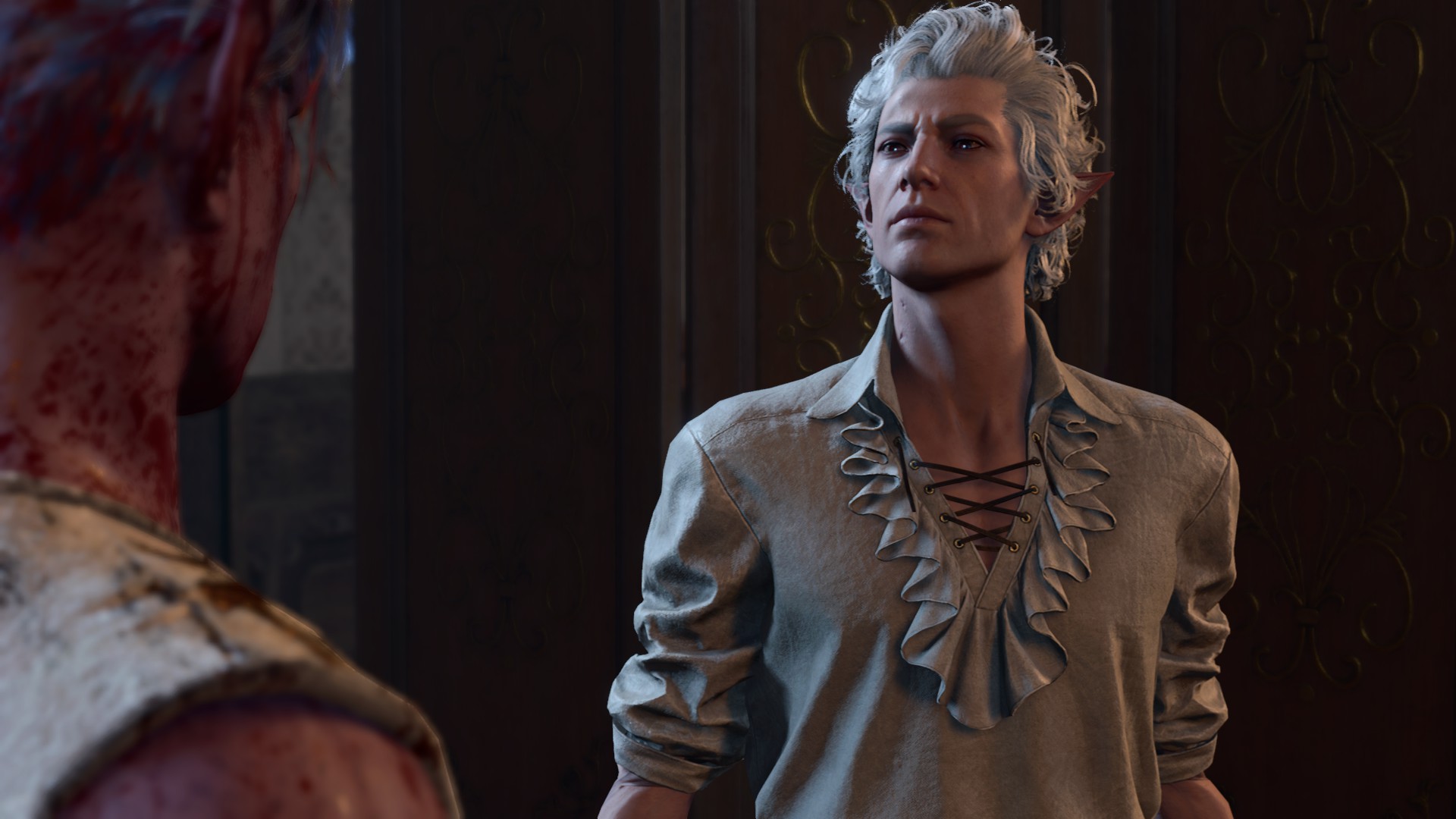
As with many companions in Baldur's Gate 3, the player gets to shape and direct their choices, turning them into either the best—or the worst—versions of themselves. Astarion's no different, able to give in to his base instincts, or to allow himself to be vulnerable—to give mercy and salvation to his fellow survivors after centuries of enthralment to a cruel and capricious vampire lord.
"Survivors find a way to survive," Newbon says, both of the journey Astarion experiences and of navigating trauma in the real world. "If you can get through things like that, you find the joy in the things that you do have in your life. You can create your own life, in the way that you want.
"I think there's something of a survivor in most people … it's how we carry ourselves through that experience, and how we treat people afterwards. I think it's really a testament of how [people] can get through something like that. Sadly, in the real world, not everyone can—some sadly succumb to their abuse in a myriad of ways. I am a survivor. Something which is private, and which I haven't actually shared beyond my closest friends.
"The details are still and will remain private, but I feel OK to acknowledge it: despite the pain and suffering experienced over years, my experience drove me to want to find a better version of myself—my life, my craft—and pass that on, to help and champion others as I have been championed by many amazing people. It's made me incredibly grateful for every opportunity I've been given, and I hope I do justice to the people who gave me generosity, understanding and support when I needed it most."
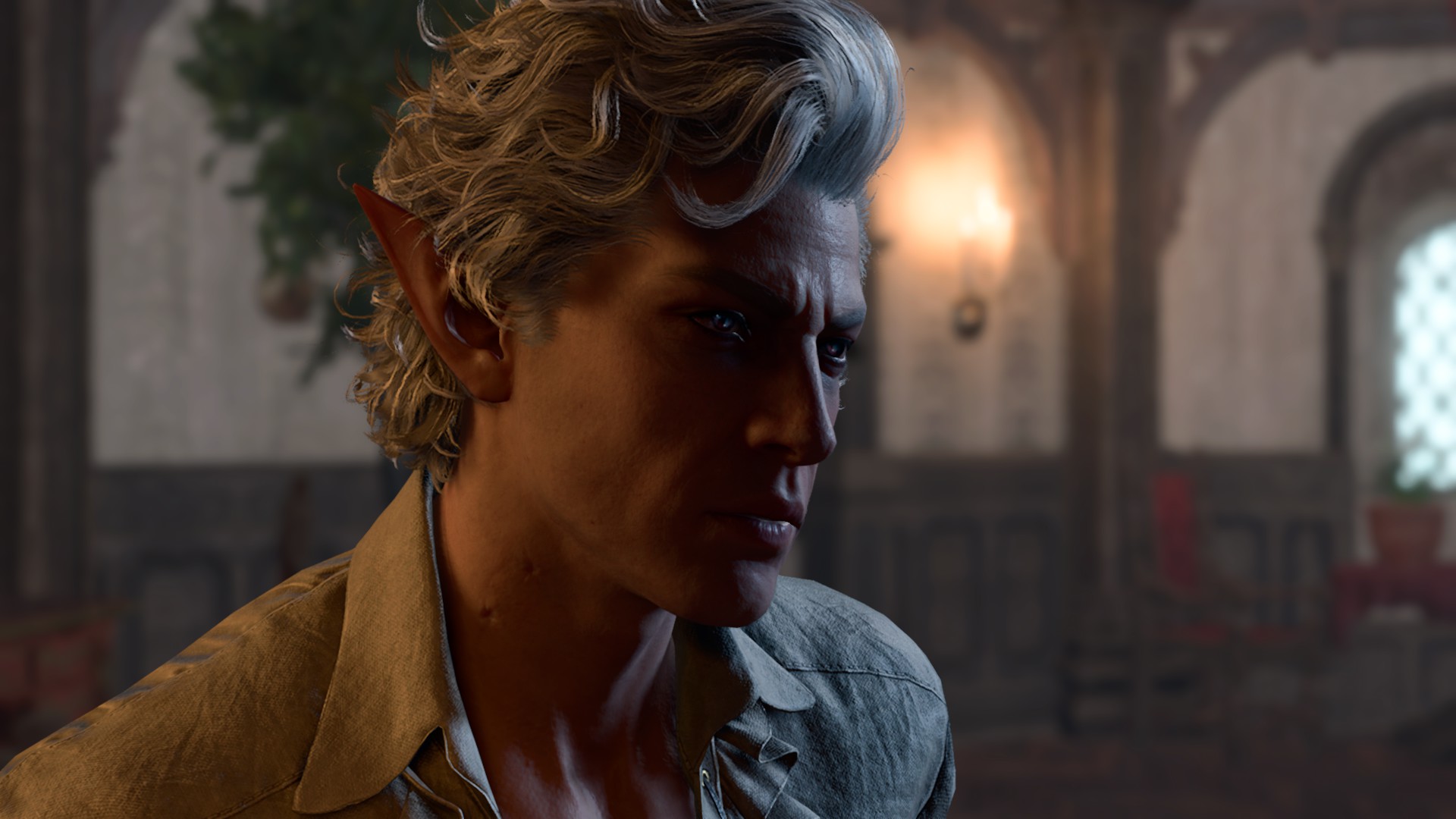
As we talk, I'm reminded of a particular scene I encountered recently that surprised me, sent to me by a friend who has romanced Astarion in a Dark Urge playthrough. To spare as many spoilers as I can, Astarion eventually finds out about your character's violent desires, and he's shockingly patient and accepting. That self-protective instinct I mentioned earlier melts away the moment someone Astarion cares for is being controlled by an outside force—his past pain turns him into an empathetic caretaker, changing up your dynamic with the character completely.
"Throughout a person's journey—how we carry ourselves after a traumatic experience, how we treat people regardless of our pain—[these things] become a testament of personal heroism. How [people] can get through something like that, and still pursue positivity and positive change—wishing to help others as well as themselves … the effect all people can have by the simple act of helping others. It ripples throughout life so wide that it often comes back to us, usually in ways we don't expect, but often find ourselves needing. In my own life, this has definitely been true."
Handled with care
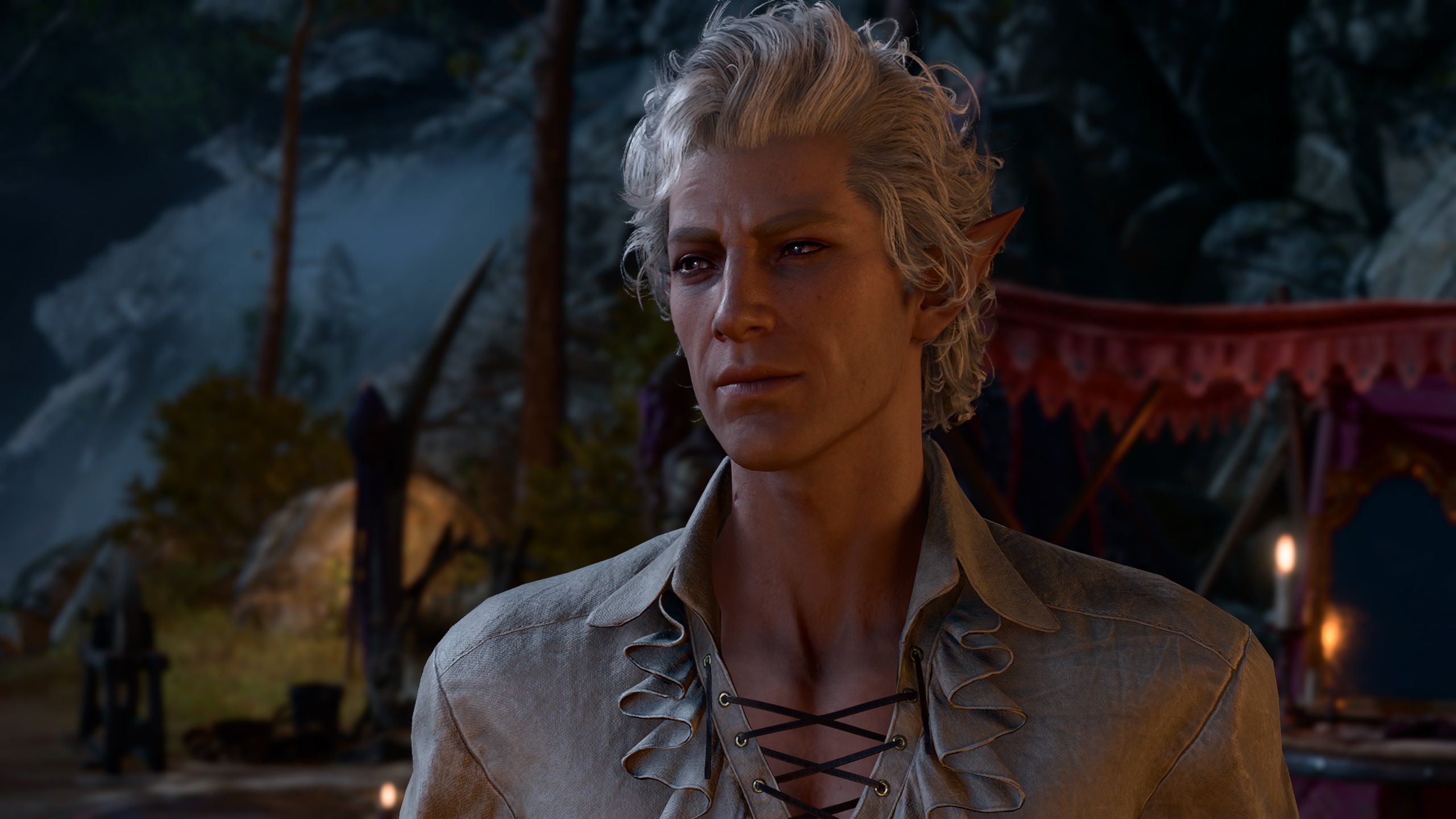
Before we head into other topics, Newbon expresses his hopes that fans will see the work he's done to perform this journey with care: "It's not a gimmick. He's not [traumatised] because it's 'just another idea for a character story' … this was a very fleshed out, deep, layered observation of a character in trouble and jeopardy, having gone through trauma—and then what they do to get out of that, and what they can do with their newfound sense of freedom, and what that means to them."
From what I've experienced, Astarion's tale walks this tightrope with due respect for its subject matter. Newbon hasn't just had to explore one narrative arc within these topics—he's had to portray endings both good and bad for a deeply damaged person, running a full gamut of coping mechanisms in the face of true evil.
Sex, and the themes that surround it—politics, power, abuse, and control—they aren't just punchlines in Baldur's Gate 3. In many of the game's stories, such as with Astarion himself, they've been explored with real care.
"Larian has written many stories in this amazing adventure—I feel none of them were done arbitrarily or without great care to the subject matter, and I count myself lucky to be able to tell even just one of them."






